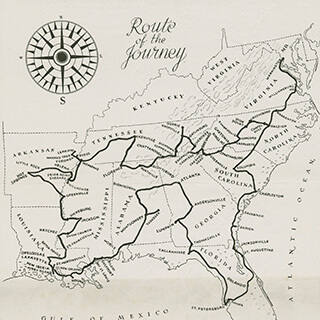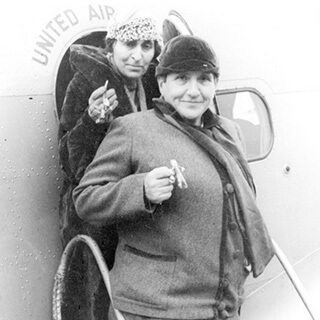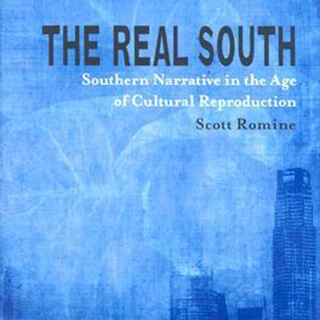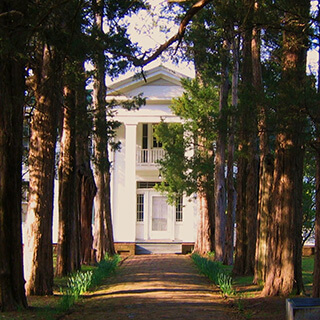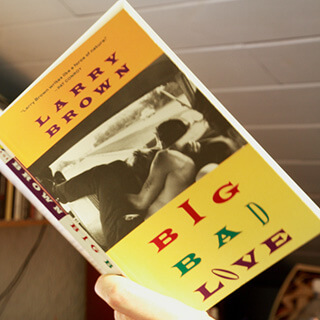Overview
Tom Rankin reviews Chuck Thompson's new book Better off Without 'Em: A Northern Manifesto for Southern Secession (New York: Simon and Schuster, 2012).
Review
 |
When I saw a note about Chuck Thompson's new book, Better Off Without 'Em: A Northern Manifesto for Southern Secession, I had to take a look. From the title alone I thought it might be the proverbial train wreck of colliding stereotypes, but like most passersby of an accident I had to stare at least a little. A writer of "travel memoirs," Thompson seems to have arrived in the South with much of his opinion fixed, many of his storylines nearly set in stone. I've been amused in recent years with the increasingly terse genre categories of writing: Chick Lit, Grunge Lit, or speaking of the American South, Grit Lit. I have to admit deep suspicion of easy taxonomy. But after reading Thompson, I'd like to offer a new genre: Flit Lit.
Flit Lit is the work of a growing tradition of writers who descend into a locale or region or perhaps even another person's life, and become, rather miraculously and quickly, experts. And then record their revelations and deep understandings in writing, for us, their wide audience.
"Flitting" is not the same as traveling. And it's certainly not the same as moving into new spaces and geographies with a keen eye and ear for reflection and understanding. The American South was chronicled early, and at times with profound resonance, by a range of travelers and visitors. William Bartram and William Byrd left indelible and artful accounts in the 1700s. What would we be without James Audubon's nineteenth-century visual and literary records of where he went, what he experienced, and what he saw. Or what about Frederick Law Olmsted's A Journey in the Seaboard Slave States? I wouldn't consider any of their work a result of flitting. But Thompson, with his bar tab calculations and his smug questions fired at southerners across an imagined territory, recounts his journey, twelve states wide and a quarter-mile deep. That, to be sure, deserves a special place on any bookstore's Flit Lit shelf.
In the book's Epilogue, Thompson writes about attending Professor James Cobb's "Understanding Southern Culture" class at the University of Georgia. After class he treats three professors and three students to adult libation in hopes of learning more about his set plot of secession. "Although the night hadn't produced the secession quorum I'd be angling for," he muses, "in an unexpected way it did provide a glimpse into how the future of the South might play out, with or without separation." He writes on, summarizing his lessons from the three Georgia students, his characteristic patronizing tone in high form: "Shots shooted, bar tabs settled, bro hugs administered, I said good-bye to my new college buds—three intelligent, thoughtful, ambitious guys on the campus of a major university that pulls 60 percent of its student population from metro Atlanta, the most important city in the South. Three likely leaders of tomorrow."
But I like the honesty of his approach. ("Mr. Thompson decided to use wishful thinking as his guide," wrote Janet Maslin in the New York Times.) Thompson refers to his task as that of a "fledgling ethnographer," and his cutesy, near-humorous conclusions remind me of a plethora of reality television shows. I just wish for much more reality and a lot less TV. "How can I miss you when you won't go away?" sings native Arkansan Dan Hicks in his tongue-in-cheek classic. As someone continually and deeply interested in individual stories, personal explorations of postage stamps of community soil, I ask Thompson, "How can you understand the South if you won't stop and stay?"
The real answer, perhaps, is just that I'm just not made for Thompson's approach or book—flit's not my lit. 
About the Author
Tom Rankin is director of the Center for Documentary Studies and associate professor of the Practice of Art and Documentary Studies at Duke University. His books include Sacred Space: Photographs from the Mississippi Delta (University Press of Mississippi, 1993) and Local Heroes Changing America: Indivisible (Norton, 2000). Forthcoming books include A Place of Tender Images: Paul Kwilecki's Four Decades of Photography of Decatur County, GA (forthcoming 2012) and Truths of the Matter: Traditions in Documentary Studies (forthcoming 2012). His photographs have been published and exhibited widely. He is a frequent writer on photography and the documentary tradition.
Recommended Resources
Bartram, William. Travels Through North & South Carolina, Georgia, East & West Florida, the Cherokee Country, the Extensive Territories of the Muscogulges, or Creek Confederacy, and the Country of the Chactaws; Containing An Account of the Soil and Natural Productions of Those Regions, Together with Observations on the Manners of the Indians. Philadelphia: James and Johnson, 1791.
Byrd, William and Edmund Ruffin. The Westover Manuscripts: Containing the History of the Dividing Line Betwixt Virginia and North Carolina; A Journey to the Land of Eden, A.D. 1733; and A Progress to the Mines. Petersburg, VA: Edmund and Julius C. Ruffin, 1841.
Carpenter, Brian and Tom Franklin, eds. Grit Lit: A Rough South Reader. Columbia: University of South Carolina Press, 2012.
Maslin, Janet. "A Northern (or Maybe Bronx?) Cheer for the South’s Independence." The New York Times, August 22, 2012, http://www.nytimes.com/2010/02/28/us/politics/28health.html.
Olmsted, Frederick Law. A Journey in the Seaboard Slave States; With Remarks on Their Economy. New York: Dix and Edwards, 1856.
Thompson, Chuck. Better Off without 'Em: A Northern Manifesto for Southern Secession. New York: Simon and Schuster, 2012.
